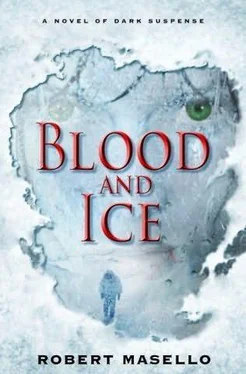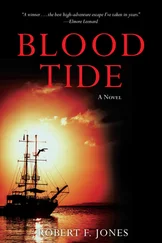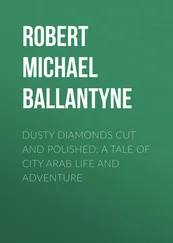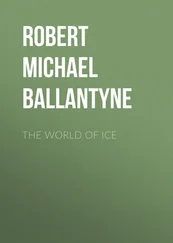Robert Masello - Blood and Ice
Здесь есть возможность читать онлайн «Robert Masello - Blood and Ice» весь текст электронной книги совершенно бесплатно (целиком полную версию без сокращений). В некоторых случаях можно слушать аудио, скачать через торрент в формате fb2 и присутствует краткое содержание. Жанр: Триллер, на английском языке. Описание произведения, (предисловие) а так же отзывы посетителей доступны на портале библиотеки ЛибКат.
- Название:Blood and Ice
- Автор:
- Жанр:
- Год:неизвестен
- ISBN:нет данных
- Рейтинг книги:3 / 5. Голосов: 1
-
Избранное:Добавить в избранное
- Отзывы:
-
Ваша оценка:
- 60
- 1
- 2
- 3
- 4
- 5
Blood and Ice: краткое содержание, описание и аннотация
Предлагаем к чтению аннотацию, описание, краткое содержание или предисловие (зависит от того, что написал сам автор книги «Blood and Ice»). Если вы не нашли необходимую информацию о книге — напишите в комментариях, мы постараемся отыскать её.
Blood and Ice — читать онлайн бесплатно полную книгу (весь текст) целиком
Ниже представлен текст книги, разбитый по страницам. Система сохранения места последней прочитанной страницы, позволяет с удобством читать онлайн бесплатно книгу «Blood and Ice», без необходимости каждый раз заново искать на чём Вы остановились. Поставьте закладку, и сможете в любой момент перейти на страницу, на которой закончили чтение.
Интервал:
Закладка:
“I give you my word,” he reassured her, “no one will harm you.”
“You won't mean to,” she said, “but you will.”
Michael wasn't sure what she was getting at, but he heard in the distance the buzzing of Lawson's snowmobile as it climbed the hill. Eleanor looked up in alarm. What, Michael wondered, would she make of that noise? Would it have any significance?
What world-what time-had she come from?
“We have to go,” Michael said. Eleanor sat, clearly trying to concentrate her thoughts, as still as a statue, as still as he had seen her in the ice.
As still as Kristin had been, in her hospital bed.
The snowmobile was coming closer, the roar of its engine penetrating the empty church. And then it stopped outside.
Eleanor Ames looked fixedly at Michael, as if trying to think through a confoundingly difficult puzzle-just as he was doing. He could only imagine all the questions in her mind, all the factors she was trying to balance out. The lives-not only her own- that she was trying to save, or protect.
“Hello?” Lawson called out. “Anybody home?” His footsteps echoed on the stone floor.
Eleanor's fingers worried the ratty blanket.
Michael, for fear of saying the wrong thing, said nothing more.
“Hey, Michael, I know you're in here somewhere!” Lawson called out, strolling toward the altar. “We've got to get rolling.”
Eleanor's expression was filled with anguish… and an exhaustion Michael had seen only once before, on the face of a man who had spent the entire night single-handedly trying to save his house from a wildfire in the Cascades. To no avail.
She coughed, but she was too weary to lift a hand to cover her mouth.
“Can you tell me something?” she said, in a voice filled with defeat and resignation.
“Of course. Anything.”
Lawson was close enough that Michael could hear the squelching of his boots just outside the door.
“Whatj year is this?”
CHAPTER THIRTY-FOUR
December 16, 11:30 a.m.
The wind, when Sinclair left, had been low, but it was coming up fast. He had guided the dogs down through the ramshackle buildings of the whaling station-past the blacksmith's shop, where dozens of harpoons, some as long as the lance he had carried into battle, were still mounted in racks against the wall-and toward the northwest, where he could see a low ridge of ice, obscuring anything beyond. He doubted he would find anything on the other side, but what choice did he have? Surrender himself, and Eleanor, to the ministrations of those from whom they had narrowly made their escape? Sinclair trusted no one
… and never would again.
Even, sad to say, his own beloved. He'd locked Eleanor in the rectory before leaving because, in her present weakened state, he did not know what she would do; he feared that when she awoke, she might succumb to some sudden impulse and attempt to do away with herself. How precisely that could be done, he wasn't sure. He knew that their corruption, despite its awful price, afforded them protection from maladies that would kill anyone else-cholera, dysentery, the mysterious Crimea fever… even a hundred years, or however long it had been, imprisoned at the bottom of the sea. But whatever devilish mechanism fueled their endless life could not, he suspected, withstand corporeal destruction. He glanced down at the back of his torn boot, where the dog had ripped at his calf. The wound beneath had stopped bleeding, it had even healed over, but in some indefinable way it was not living flesh. It was a patch, a scab, a plaster-something helping to hold together a walking, talking, breathing skeleton. He could break, it seemed, but he could not wither.
Not at all in keeping with the brigade's motto, he reflected wryly. It was neither death, nor was it glory. Instead, it was a sort of way station, reminding him of the idle days the Light Brigade had been forced to endure in the Crimea.
For weeks, they had done nothing but wait about, observing the infantry actions from their standing mounts, held in reserve, constantly, for a decisive moment that never seemed to come. Under the direction of Lords Lucan and Cardigan-two men, brothers-in-law, who despised each other thoroughly-the 17th Lancers had been shifted from one remote outpost to another, always held in check lest they be spent too soon. Sinclair, like many of the others, had begun to feel that they were becoming an object of derision among the other troops-the fancy horse soldiers, in their plumes and pelisses, their gold braid and their bright cherry trousers, munching on hard-boiled eggs and biscuits-while their compatriots did the dirty work of storming the redoubts. When, at one critical juncture, the Russian cavalry had been allowed to escape in total disarray without being pursued and annihilated, Sergeant Hatch, barely recovered from his bout with the malaria, had broken his pipe in disgust and thrown the pieces into the dirt.
“Is it a gilded invitation they're waiting for?” he snarled, while reining in his impatient horse and throwing a dark look up at the heights, where the Commander in Chief, the elderly, one-armed Lord Raglan, could be seen with his telescope, surrounded by aides. “They won't get a better one than that.”
Even Captain Rutherford, known as much for his imperturbable nature as his bushy muttonchops, appeared impatient, and after taking a long sip from his flask-filled with rum and water- leaned across his saddle and offered it to Sinclair. “It may be another long day,” he said.
Sinclair had taken it and drunk deeply. Ever since the 17th Lancers had set sail, the war had been a vast, costly anticlimax-a violent journey across pitching seas that had killed off countless horses, followed by endless marches through narrow gorges and empty plains, all the while leaving bodies in their wake, food for vultures and vermin… and the strange, scuttling creatures that they glimpsed only at night, lurking just beyond the pickets at their posts. Sinclair had asked one of the Turkish scouts what they were, and, after superstitiously spitting over his own left shoulder, the man had muttered, “Kara-kondjiolos.”
“But what does it mean?”
“Bloodsuckers,” the scout replied, with disgust. “They bite the dead.”
“Like jackals?”
“Worse,” he said, searching for the right word. “Like… the cursed.”
Whenever one had been spotted-never as anything more than a hunched-over shape clinging to the shadows or crawling close to the ground-Sinclair had noted that the Catholic recruits ostentatiously crossed themselves and everyone, regardless of faith, sidled closer to the campfires.
It was a far cry, the foreign land he was traveling through, from his home. And though he had seen nothing so stirring ever since, he remembered well the flags and bunting, the brass bands and fluttering handkerchiefs, when the army had first boarded the ships in England. Even the town of Balaclava, once an idyllic little seaport, had been rendered unrecognizable. Before the British troops had arrived, the town had been a favorite retreat of the residents of Sebastopol, its pretty little villas famous for their green-tiled roofs and neatly cultivated gardens. From all reports, every cottage and fence post had been adorned with roses, clematis, and honeysuckle, and light green Muscatel grapes, ripe for the picking, hung in great clumps from the vines. Orchards carpeted the hillsides, and the pristine waters of the bay sparkled like crystal.
And then the Agamemnon, the British navy's most powerful man-of-war, had steamed into the harbor, and the army-twenty-five thousand strong at that landing point alone-had made the town its base of operations. The villas were overrun, the gardens churned to mud, the vines trampled underfoot. With many of the soldiers sick or dying from diarrhea, the tiny landlocked harbor had become an immense and reeking latrine, foul with waste and refuse. Lord Cardigan, no fool, had elected to stay several miles away, on board his private yacht, the Dryad. There, his meals were prepared by his French chef, while a flock of orderlies and aides rode their weary horses up and down the steep hills to the harbor, carrying his dispatches. Among the troops, when out of earshot of an officer, he had come to be called “The Noble Yachtsman.”
Читать дальшеИнтервал:
Закладка:
Похожие книги на «Blood and Ice»
Представляем Вашему вниманию похожие книги на «Blood and Ice» списком для выбора. Мы отобрали схожую по названию и смыслу литературу в надежде предоставить читателям больше вариантов отыскать новые, интересные, ещё непрочитанные произведения.
Обсуждение, отзывы о книге «Blood and Ice» и просто собственные мнения читателей. Оставьте ваши комментарии, напишите, что Вы думаете о произведении, его смысле или главных героях. Укажите что конкретно понравилось, а что нет, и почему Вы так считаете.












